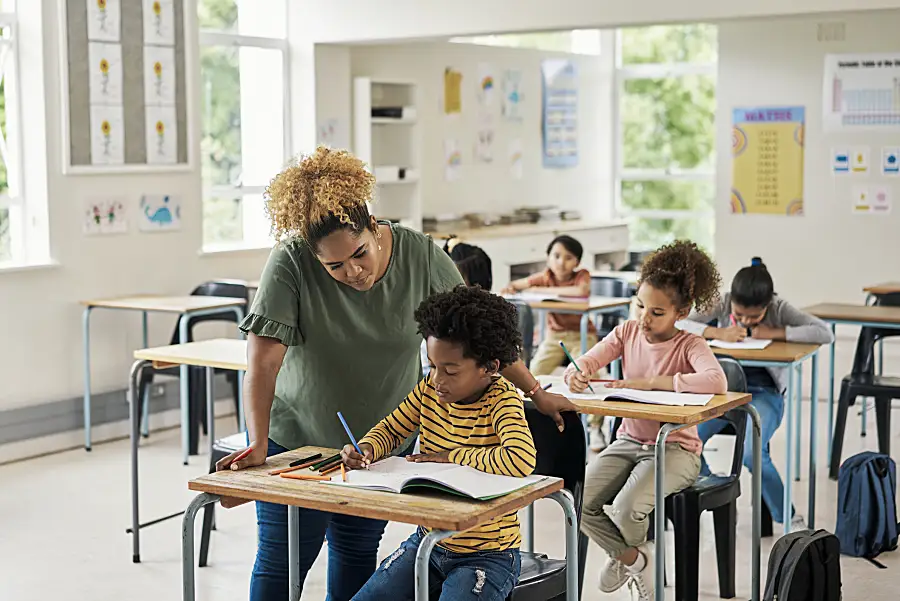
In the dynamic landscape of education, the pursuit of effective learning has evolved beyond traditional instructional methods. Central to this transformation is the recognition that students are active participants in their own educational journey and not merely passive recipients of knowledge. Student choice and agency are fundamental pillars in shaping lifelong learning skills by empowering individuals to take ownership of their learning process, allowing them to make decisions about their educational path and to shape their academic experiences based on their interests and goals. As educators strive to create environments that foster autonomy and empowerment, the interplay among motivation, student choice, and agency emerges as a powerful catalyst for cultivating self-regulated learners poised for academic excellence. While education is evolving, the most robust comprehension of learning is rooted in foundational theories. These theories offer invaluable insights into the underlying drivers of learning motivation.
Motivating Learners Through Student Agency and Choice
In the realm of education, motivation is a cornerstone for understanding and enhancing learning experiences. Motivation is the driving force behind learners’ engagement, persistence, and achievement. Self-Determination Theory (SDT), developed by Deci and Ryan (2000), emphasizes the fundamental human needs for autonomy, competence, and relatedness, and proposes that satisfying these needs leads to enhanced intrinsic motivation, well-being, and optimal functioning.

In teaching, SDT suggests that educators can foster motivation and engagement by creating autonomy-supportive environments that provide opportunities for student agency and choice (Deci & Ryan, 2000). Student agency and choice refer to students’ ability to make decisions about their learning experiences and take ownership of their educational journey (Reeve, 2006). Giving learners choice, even basic decisional choices, satisfies a basic psychological need for autonomy and self-endorsed decisions, leading to increased engagement and information retention (Schneider et al., 2018, Taub et al., 2020). Students who feel a strong sense of agency, persist longer, and are more likely to deliberately use the available scaffolds when encountering difficulty (Ivey & Johnston, 2013).
Effective student choice must be relevant to the student's personal interests, at an appropriate level of challenge, and offered in a manageable number to avoid overwhelming the student (Evans & Boucher, 2015). By considering the principles of SDT, educators can create learning environments that nurture intrinsic motivation, autonomy, competence, and relatedness and foster students’ holistic development and long-term success (Robertson et al., 2020).
Fostering Learning Through Student Agency and Choice
 Motivation is essential for learning, but it is only a part of the learning process. In the dynamic landscape of education, the ability to learn effectively is not determined solely by the content presented in textbooks or lectures, but rather by the learner’s capacity to engage actively with and regulate their own learning process. Self-regulated learning equips students with the skills and mindset necessary for lifelong learning and academic success. As defined by Pintrich (2000), self-regulated learning encapsulates an active, constructive process wherein learners establish goals for their learning and then endeavor to monitor, regulate, and control their cognition, motivation, and behavior. The self-regulated learning process includes the following stages:
Motivation is essential for learning, but it is only a part of the learning process. In the dynamic landscape of education, the ability to learn effectively is not determined solely by the content presented in textbooks or lectures, but rather by the learner’s capacity to engage actively with and regulate their own learning process. Self-regulated learning equips students with the skills and mindset necessary for lifelong learning and academic success. As defined by Pintrich (2000), self-regulated learning encapsulates an active, constructive process wherein learners establish goals for their learning and then endeavor to monitor, regulate, and control their cognition, motivation, and behavior. The self-regulated learning process includes the following stages:
- Plan & Set Goals: Students set achievable goals and develop a plan for learning.
- Use Strategies & Monitor Performance: Students continually assess their progress toward meeting their goals and adjust their learning strategies accordingly.
- Reflect & Adapt: Students evaluate their performance and the strategies they used.
Self-regulated learning flourishes when students are granted the autonomy and agency to shape their educational experiences (Reeve, 2006). By providing opportunities for student choice and agency, educators empower learners to take ownership of their learning process by mastering the skills needed to plan, oversee, and assess their learning (Deci & Ryan, 2000; Moses et al., 2020; Holmes, 2020). When students have a say in selecting topics of interest, setting learning goals, and determining how to achieve them, they become more deeply engaged and motivated in their studies (Ryan & Deci, 2000). Moreover, fostering a classroom environment that encourages student agency cultivates a sense of responsibility and accountability, as learners recognize the impact of their decisions on their own learning outcomes (Zimmerman, 2000). Through the lens of student agency and choice, self-regulated learners are not just passive recipients of knowledge but active participants in their educational journey, equipped with the skills and mindset necessary for lifelong learning and success.
Promoting student choice and agency involves creating opportunities for students to make decisions about their learning experiences and to take ownership of their educational journey. The following are some strategies to achieve this:
- Reflection and Goal-Setting: Incorporate regular opportunities for students to reflect on their learning progress and set goals for improvement.
- Flexible Learning Paths: Provide students with options for demonstrating their understanding of concepts or complete assignments. This might include using playlists and offering alternative assignments, projects, or assessment formats that cater to different interests.
- Student Voice and Advocacy: Foster a classroom culture where student voice is valued and encouraged. Involve students in decision-making processes related to classroom rules, activities, and curriculum choices, giving them a say in their educational experience.
- Choice in Topics: Allow students to choose topics or themes for projects, research papers, or class discussions. By selecting subjects that resonate with their interests, students are more likely to feel motivated and engaged in their learning.
As educators navigate the complexities of not just teaching students, but developing lifelong learners, providing students with opportunities for choice and agency becomes paramount. At a time when students face increasing distractions, fostering autonomy and ownership over their learning process can reignite motivation and engagement. By empowering students to make decisions about their educational path, educators can cultivate environments where self-regulated learning flourishes, resulting in increased academic outcomes and lifelong learning potential.
References
Deci, E. L., & Ryan, R. M. (2000). The “what” and “why” of goal pursuits: Human needs and the self-determination of behavior. Psychological Inquiry, 11(4), 227–268.
Evans, M., & Boucher, A. (2015). Optimizing the Power of Choice: Supporting Student Autonomy to Foster Motivation and Engagement in Learning. Mind, Brain, and Education, 9, 87-91. https://doi.org/10.1111/MBE.12073.
Holmes, N. G., Keep, B., & Wieman, C. E. (2020). Developing scientific decision making by structuring and supporting student agency. Physical Review Physics Education Research, 16(1), 010109.
Ivey, G., & Johnston, P. H. (2013). Engagement with young adult literature: Outcomes and processes. Reading research quarterly, 48(3), 255-275.
Moses, L., Rylak, D., Reader, T., Hertz, C., & Ogden, M. (2020). Educators’ perspectives on supporting student agency. Theory into practice, 59(2), 213-222.
Robertson, D. A., Padesky, L. B., & Brock, C. H. (2020). Cultivating student agency through teachers’ professional learning. Theory Into Practice, 59(2), 192-201.
Pintrich, P. R. (2000). The role of goal orientation in self-regulated learning. In M. Boekaerts, P. R. Pintrich, & M. Zeidner (Eds.), Handbook of self-regulation (pp. 451–502). Academic Press.
Reeve, J. (2006). Teachers as facilitators: What autonomy-supportive teachers do and why their students benefit. The Elementary School Journal, 106(3), 225–236.
Ryan, R. M., & Deci, E. L. (2000). Self-determination theory and the facilitation of intrinsic motivation, social development, and well-being. American Psychologist, 55(1), 68–78.
Schneider, S., Nebel, S., Beege, M., & Rey, G. D. (2018). The autonomy-enhancing effects of choice on cognitive load, motivation and learning with digital media. Learning and Instruction, 58, 161-172.
Taub, M., Sawyer, R., Smith, A., Rowe, J., Azevedo, R., & Lester, J. (2020). The agency effect: The impact of student agency on learning, emotions, and problem-solving behaviors in a game-based learning environment. Computers & Education, 147, 103781.
Zimmerman, B. J. (2000). Attaining self-regulation: A social cognitive perspective. In M. Boekaerts, P. R. Pintrich, & M. Zeidner (Eds.), Handbook of self-regulation (pp. 13–39). Academic Press.
